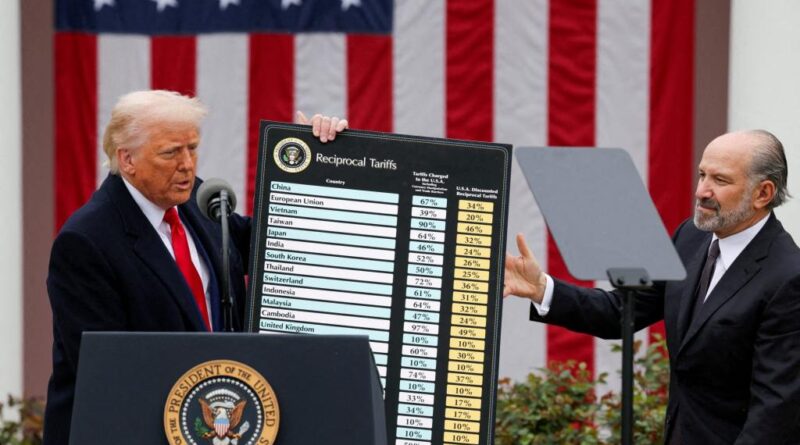Trump’s China Tariffs Are Hitting Small Businesses Hard — The Core of Our Economy and His Supporters

President Donald Trump’s outrageous 145% tariffs on imports from China are causing significant distress, but it’s not his wealthy allies who are feeling the brunt of it.
Instead, it’s the everyday citizens — the very individuals who supported him and constitute the backbone of the nation and his constituency.
Take a look at the stories that we’ve received recently — small business owners with strong ties to China are being crushed under the weight of new tariffs amounting to tens or even hundreds of thousands of dollars.
Unlike Walmart, they lack the negotiating power to shift most of these costs onto their Chinese suppliers.
They also don’t have the resources for million-dollar donations or the steep fees that grant access to Mar-a-Lago for advocacy. They certainly can’t afford expensive lobbyists to persuade Trump for special exceptions.
As a result, these voiceless and powerless businesses are forced to lay off employees, raise prices, reduce inventory, or even shut their doors permanently.
“If things don’t change in two months, I’ll likely close down,” worries Sari Wiaz, owner of Baby Paper, which specializes in toys sourced from China.
Katrina Marshall had to halt a pending shipment for her company, Artistic Toys and Promotions, due to a staggering $403,000 tariff fee. Her business plans to reduce its workforce this week.
Consider this: For every $100 spent on Chinese products just a few weeks ago — be it clothing, furniture, toys, or home gadgets — companies must now fork over an astonishing $245.
This sudden increase renders their business plans unfeasible overnight. How can they be asked to sacrifice their livelihoods and those of their employees for some elusive “Golden Age”?
They exist in the present, and in this moment, they are suffering.
Yes, they could attempt to pass the added costs onto consumers by increasing prices, but buyers will likely resist. (These buyers are primarily low- and moderate-income families who can’t absorb price hikes.)
They might look for alternative production sources, as larger companies have done. However, the transition could take a year or longer — a timeline they simply don’t have.
The problem is widespread: the US toy industry alone receives 80% of its products from China, while about a third of all imported clothing and accessories had origins in China in 2022.
(Does the US need to become a major player in toy and clothing manufacturing to thrive?!)
Trump is correct to challenge China — regarding its mercantilist practices and other issues. Tariffs of 10% to 20% — or higher in specific strategic sectors — are feasible.
However, the abrupt implementation of such extreme tariffs, impacting a substantial portion of the US economy in a chaotic fashion, will unfairly burden those who simply cannot cope with it.
Remember: Small businesses contribute to 44% of US GDP and provide nearly half of all jobs. The working-class individuals impacted by these tariffs form a significant part of Trump’s voter base.
Surely the President wouldn’t want to hand over Congress to the Democrats in the upcoming midterms, would he?
Be cautious of the bubble, Mr. President: You’re amidst a class of people who are insulated from these financial strains; they are oblivious to how much these surcharges are affecting small business proprietors and their customers.
If the White House does not quickly acknowledge the escalating discontent, the repercussions — both economic and political — will be swift, profound, and enduring.



